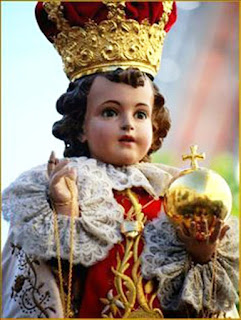
You’ll agree with me when I say that the most ideal celebration of Christmas for Filipinos, and perhaps for other cultures too, is to be with our families on this great festivity. I bet many have shed tears on Christmas day because they are away from their beloved families. “Many” could mean millions of Filipinos… those working abroad, for instance.
A friend’s post on her facebook account made me realize this most remarkably. She said something like this: “This Christmas is gonna be all work for me here in this foreign land. I miss home. I miss watching everyone decorate the house… with Christmas tree… with lanterns… with mistletoes… I miss cooking for noche buena. I miss my palangga. I miss papa and mama. I miss friends dropping by and share the spirit of Christmas. I miss the carolers that come one after the other. I miss home. Terribly. But this Christmas is gonna be all work for me.”
There is indeed a profound link between Christmas and family. After all, the first Christmas is a family affair—the birth of God into a human family. The holy family has an indispensable role in the fulfillment of the prophetic promise that God is going to be among us, God-with-us, even if the world turns a cold shoulder to God’s initiative.
The “Panunuluyan” or “Posadas” reenacts the journey of Joseph and Mary to Bethlehem for the census decreed by the King. In this reenactment, one is easily led to see how the holy family ended up in a manger. The world has been too preoccupied with other concerns to have room for the child to be born. This prefigures the world’s rejection of Jesus and all that he stands for.
Here’s then the central role of the holy family: even if the world rejects God, the family of Joseph and Mary guarantees the provision of the warmth which the chilling baby Jesus needs to survive. The holy family is Jesus’ security. The Holy family ensures the fulfillment of God’s promise in Jesus. The Holy Family accepts, nurtures, and supports Jesus’ vocation and mission in contradistinction to the mockery and derision that Jesus receives from the faithless world.
Today’s gospel (Lk 2:41-52), which is the account of the losing and finding of Jesus in the temple, dramatizes the supporting role of the family of Jesus in relation to his calling. Jesus stayed in the temple listening and asking question, and maybe, even discussing among the teachers; while his parents were worried searching for him for three days! When finally his parents found him and slightly chided him, he said to them, “Why were you looking for me? Do you not know that I must be in my Father’s house?”
Another translation puts it this way: “Do you not know that I must be in my Father’s business?” This means that Jesus was beginning to be aware of his identity and calling. He has to be about what the Father has sent him for. While Joseph and Mary did not understand Jesus’ remark, they nevertheless continued to support Jesus as he grew in wisdom and age.
The holy family is indispensable for the birth, the growth, and vocation and mission of Jesus who became one of us. This holds true then to the role of our families in our lives. We need our families in order to survive and to become persons with meaningful purpose in life. Without a sound family to support us, we can hardly realize our potentials and fulfill our calling.
On this Feast of the Holy Family then, it is fitting to assess our own families. How have our families measured up to their task of forming us into becoming responsible persons? Our families are surely imperfect. But what can still be done to make our families work as the “cradle of life and love” and as the community within which we grow in wisdom and understanding of who we are and what God wants us to do in life?
Our families today are undeniable facing crisis and innumerable threats: To name just a few: High rate of divorce in many nations, stronger assertion of independence of spouses, single-parenting, weakening of parents’ authority, step-parenting, non-marital unions, and particularly for us Filipinos, the breaking of our families because of financial necessity that forces parents to work abroad leaving their growing children to guardians.
There is no one answer to these problems and it is not my purpose to offer one. Maybe the gospel today is a wake up call. It raises the question. It reminds us of the irreplaceable role of our families and therefore challenges us, each of our families and our family ministry, to look seriously into these situations which undermine the health of our families.
When the world rejected Jesus, it is his human family who accepted him, nurtured him, and supported him in what he was called to do. The world continues to be cruel especially for us today and for our children. This is the question we have to face: Where should our children run to for shelter, for understanding, for strength, and for direction if we have allowed our families to disintegrate?



